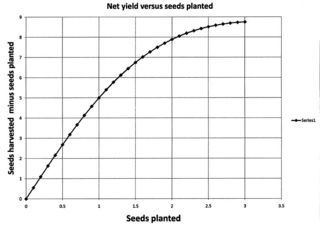Career
Efficiency
An under-discussed key to career success and personal satisfaction.
Posted July 26, 2018

This is the fourth in a series on under-discussed keys to career success and personal contentment. The first was on titration: In each situation, consciously deciding how intense, effortful, intellectual, etc. to be. The second installment was on gaining resilience. The third was on the art of making others feel good about themselves. The fifth is on practicality. The sixth is on composure.
Here, I turn to efficiency. Much has been written about time management, but the focus is usually on prioritizing and procrastination. A less discussed component of time management is efficiency: how a person tackles a task once s/he has decided to do it.
The efficient person uses a two-step process for most tasks, at or outside of work.
1. Choose an approach to the task that uses your strengths and yields the right level of perfectionism. For example, writing has always come easily to me, so I look for opportunities to write. And in writing, I usually choose a topic I already know a lot about, augmenting that with that most efficient research tool: the Google search. (I’ve written an article on efficient Google-searching.)
When writing an article on which I have most or all the needed knowledge, I simply start at the beginning and, without being perfectionist, keep writing until I have a first draft. If, in the process, I need information, I Google-search that—just-in-time learning.
When I feel I lack much of the knowledge, I start with the Google search, copy and paste nuggets into the Word file for that article, and then start writing from the beginning, inserting the nuggets as appropriate.
It’s much easier and pleasant to revise your way to perfection than to generate it out of thin air. So after I finish that first draft, I read it, revising as I go. I typically review the article four to eight times before I feel it's done—That usually occurs when a read-through requires no changes.
In counseling, I also try to be efficient. Counselors have told me that they usually spend the first session mainly listening, getting to know the client. As a result, the client walks away from the session with little that’s actionable, which may explain why many don't make another appointment.
In contrast, I email new clients a probing questionnaire to complete at home and email me in advance of our first session. I review it and use it to develop a rough plan for the session, which is two hours long. The session focuses on helping the client identify actionable baby steps that move their life forward. I use techniques to efficiently identify those baby steps. For example, if the client can’t generate his or her own ideas, I offer a few possibilities and ask, “Do you want to try any of those?” Virtually every client leaves the first session with practical steps they’re looking forward to taking, and a high percentage return.
Here's an outside-of-work example of developing an efficient approach. I like gardening but find it more pleasurable when I do it efficiently. So I buy plants that have a high pleasure-to-work ratio: for example, tomatoes, zinnias, and marigolds in the summer, violas and azaleas in the winter. None need spraying or pruning. My plants are watered with an automatic system and I use nine-month formulation time-release fertilizer so I need fertilize only once a year. (I live in Oakland, California. If you live in an area with a shorter-growing season, you’ll want to use a four or six month formulation.) Gardening efficiently allows me time to do a time-consuming gardening activity I like: hybridizing roses, creating new, prettier no-spray varieties.
2. Continually monitor for efficiency. As you're doing the task, ask yourself, “Am I doing this too perfectionistically, too shoddily, just right, or can I skip this part altogether?” In writing, when I can't make progress on a roadblock in a minute or so, I ask myself whether I should leave that part out, think about it some more, or do a Google search? That keeps me moving forward crisply.
In counseling, I’m always thinking to myself, “Is this a good use of the client’s time and money?” For example, some clients will talk for a long time. If I sense that my remaining silent is unlikely to help the person progress, I don’t hesitate to interrupt. The first time I do that, I may apologize, explaining that I know it’s considered rude, especially for a counselor, to interrupt, but I sense that our time could be better spent if we X. But of course, if you think it would be helpful to continue what you were saying, that’s fine. Invariably, my clients appreciate that and rarely want to continue their disquisition.
The Takeaway
We all know people who accomplish a lot. A likely key is that they have an ever-present voice whispering in their ear, “Is this efficient?”




